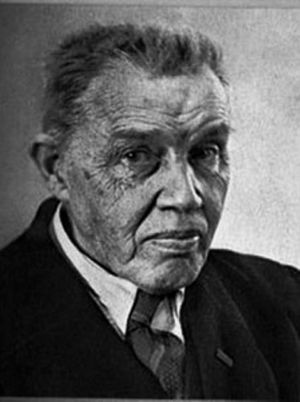Kühner Nikolai Vasilievich
25 September [ 13 September] 1877, Tiflis — 5 April 1955, Leningrad
Biography, education, career:
In 1896‑1900 Kühner was a student at the Department of Oriental languages of St. Petersburg University and was left at the university to prepare for his professorship. He improved his knowledge in China, Korea, Japan (1900‑1902, 1909, 1912, 1913, 1915) and in Austria (1905‑1906). Then he successfully occupied the positions of Professor at the Eastern Institute in Vladivostok (1902‑1919), Professor at the Far Eastern State University (1919‑1924), Professor of Leningrad State University (1925‑1955), Professor of the Leningrad Oriental Institute (1925‑1938), Head of the Cabinet of the Far East at the Institute of Ethnography of the USSR Academy of Sciences (1934‑1945), Researcher at the Central Historical Archive of the Kazakh SSR and the State Public Library (Alma-Ata) (1942‑1945), Head of the East and South Asia Sector of the Leningrad part of the Institute of Ethnography of the USSR Academy of Sciences (1945‑1955). In 1909 he defended his Master's thesis titled The Description of Tibet. On May 15, 1935 he was awarded the Degree of Doctor of History without the dissertation defense procedure.
Areas of expertise: History and ethnography of the peoples of Southeast Asia; History and ethnography of Iranian peoples; History and ethnography of the peoples of Central Asia; Ethnogeography; History and ethnography of the peoples of Siberia, the Extreme North, and the Far East


